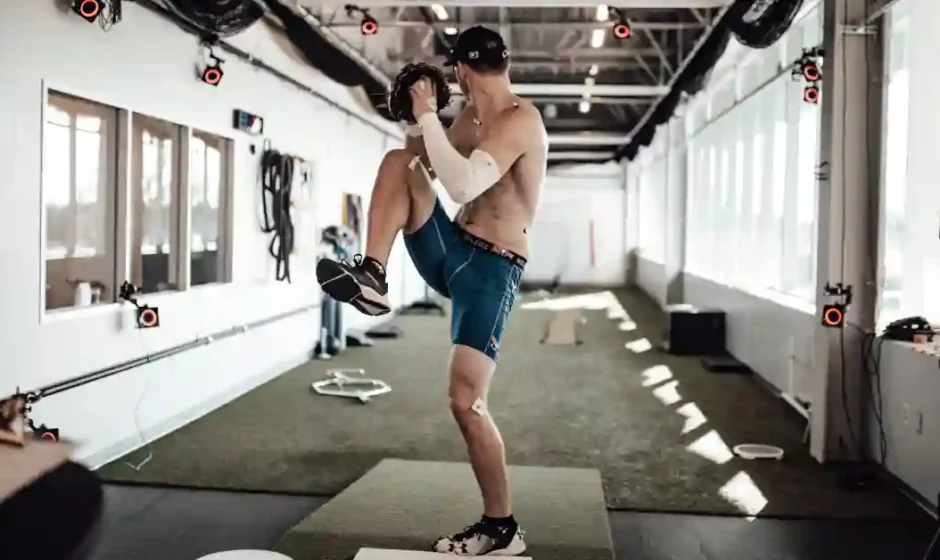Playing sports is a great way to stay active, meet new people, and learn teamwork. However, competitive sports also take a lot of hard work and practice.
Make sure to follow these tips to improve your athletic performance this spring. You’ll be surprised at how much of a difference it can make!
1. Get In Shape
The first week of getting fit is fun. It’s the rainy days and the busy days at work when you don’t want to lace up your sneakers that determine whether or not you actually get fit.
Find something you enjoy doing and make it part of your lifestyle. That will help you keep going even on days when you feel like quitting.
3. Try Ice Baths
Despite a recent study suggesting that ice baths aren’t as beneficial as previously believed, many medical professionals and serious athletes still believe in their benefits. (4)
The cold water constricts blood vessels and helps relieve some of that tightness and soreness after a long run or hard-fought game. Just be careful not to stay in too long — hypothermia and frost bite are real concerns!
4. Stay Hydrated
When young athletes are properly fueled and hydrated, they can be more likely to achieve their athletic goals. This includes fueling with water-rich foods like fruits, vegetables and broth-based soups.
Hydration is important because it helps improve muscle movement and agility, thermoregulation and recovery. Even just 2% dehydration can impact performance.
The best way to stay hydrated is by drinking water or sports drinks that contain electrolytes before and during exercise.
5. Get Enough Sleep
Sleep is a crucial part of any athlete’s life. Studies have shown that sleep affects everything from basketball shooting accuracy to sprint times.
Young athletes often have to struggle to get enough sleep, especially those who travel to play sports. They may have to balance practice, tournaments and tests with school work and even part-time jobs.
The best way to improve athletic performance is to focus on nutrition, conditioning and getting enough sleep.
6. Listen To Your Coach
Listening is one of the most important things a player can do for their sports performance. Oftentimes conflicts between athletes and coaches stem from miscommunication, so it is vital that the coach and athlete communicate effectively.
This involves listening to the coach’s ideas and philosophies, but also recognizing that they may be wrong sometimes. It also involves developing relationships and creating open communication with the team.
7. Eat Right
What you eat has an enormous impact on how well you perform in your sport. Eating nutrient dense foods (like whole grains, fruits and vegetables) is crucial.
Carb loading, a practice of getting enough carbs in the days leading up to a race or hard training session, can improve performance. Also, consuming nitrate rich foods like leafy greens and berries can help improve your blood flow during exercise.
8. Get Enough Sleep
Athletes need to get enough sleep to perform their best. If they don’t, it will affect their physical and mental performance.
Athletes also need to eat right. Avoid consuming junk food and instead opt for nutritionally dense foods like oatmeal, raisins, and chia seeds. These healthy options will provide athletes with the energy they need without adding too much sugar. Also, be sure to drink plenty of water.
9. Stay Active
If you want to maximize your athletic potential, staying active is a must. This means eating a healthy diet and adding in strength training, core training and agility exercises to your cardio workouts.
It’s important to start slow and work your way up. Try to exercise for at least 30 minutes a day. It’s also good to incorporate conditioning exercises like squats, lunges and box jumps.
10. Train Hard
Sports competition is ruthless and if you want to be great at it you need to train hard. You need to be dedicated and single minded about pushing the limits of what you think you can achieve, otherwise you are leaving everything to chance and becoming mediocre.
You can still train intensely without risking aerobic overextension by incorporating different systems into your workouts. For example, adding in a short sprint session and a core training routine to your usual cardio can help you improve faster.


